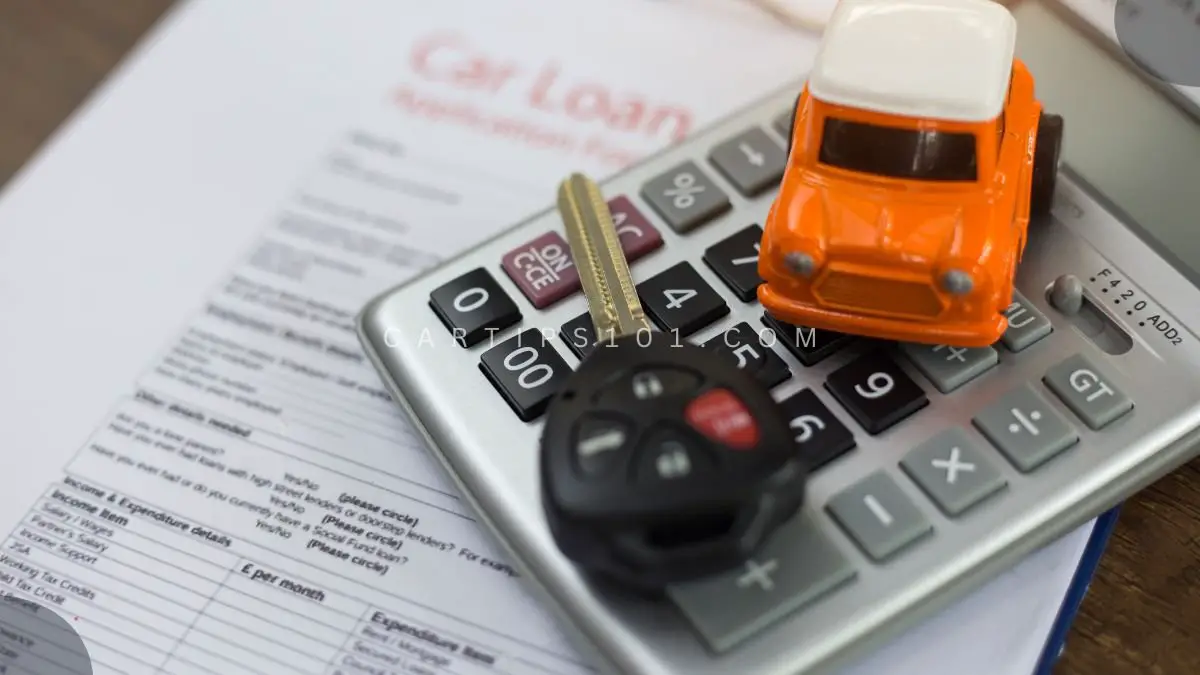When you finance a car, it's important to understand that returning it is often not an option. In most cases, you cannot return a financed vehicle. While there are a few specific scenarios where returning the car may be possible, such cases are rare. Even if you do meet the criteria for a return, you may face financial repercussions (LendingTree).
Dealer Return Policies
Some dealers may offer a return policy, sometimes called a “money-back guarantee,” which allows you to return the car within a specified return window. However, there are often additional stipulations attached to these policies. For instance, you may be unable to return the car if it has been damaged or if there is another lien against it.
| Policy Type | Description |
|---|---|
| Money-Back Guarantee | Allows return within a specified period |
| Restrictions | May not apply if the car is damaged or has liens |
It’s important to note that dealers are not legally required to provide a grace period for returns. Unless they specifically advertise a return policy as part of their marketing strategy, it's unlikely that they will accommodate your request. Always check the dealership’s return policy before making a purchase to understand your options.
Legal Protection
Understanding your legal rights is essential when considering whether you can return a financed car. Two important protections to be aware of are Lemon Laws and the Servicemembers Civil Relief Act (SCRA).
Lemon Laws
Lemon laws are designed to protect car owners who find themselves with a vehicle that has substantial defects while still under warranty. If you encounter issues with your financed car that cannot be resolved after a reasonable number of attempts by the manufacturer, you may be entitled to a refund or a replacement vehicle. These laws vary by state, so it's important to check the specifics in your area.
| Key Points about Lemon Laws |
|---|
| Protects owners of defective vehicles under warranty |
| Manufacturer must fix issues after a reasonable number of attempts |
| Entitles consumers to a refund or replacement if unresolved |
For more detailed information, you can refer to LendingTree.
Servicemembers Civil Relief Act (SCRA)
The Servicemembers Civil Relief Act (SCRA) offers specific protections for active-duty servicemembers. If you are called to active duty, receive orders for a permanent change of station internationally, or are deployed for 180 days or longer, you may have the right to terminate your vehicle lease early without incurring penalties or fees. This act is designed to ease the financial burdens on servicemembers during their service.
| Key Points about SCRA |
|---|
| Allows early termination of vehicle leases for active-duty servicemembers |
| No penalties or fees if called to active duty |
| Applies to permanent change of station orders and deployments over 180 days |
For further details, check LendingTree.
Understanding these legal protections can help you navigate the complexities of returning a financed car and ensure you are aware of your rights.
Impact on Credit
Returning a financed car can significantly affect your credit. Understanding how different return methods impact your credit score is crucial for making informed decisions.
Credit Score Impact
The effect on your credit score largely depends on how you return the vehicle. If you return your car within the dealer's return policy period, your credit score typically remains unaffected. However, if you resort to voluntary repossession, be prepared for a negative impact on your credit.
| Return Method | Credit Score Impact |
|---|---|
| Dealer Return Policy | No impact |
| Voluntary Repossession | Negative impact |
When a car is repossessed, it can haunt your credit score for up to seven years from the date of repossession. This signals to lenders that you may pose a higher risk, which can make it difficult to secure new credit in the future.
Voluntary Repossession
Voluntary repossession is an option if refinancing or selling the car are not feasible. While this method can mitigate some consequences compared to a standard default, it will still damage your credit. Voluntary repossession is generally viewed as less severe than defaulting, but the repercussions remain significant (FINN).
| Consequence | Description |
|---|---|
| Credit Score Decrease | Yes, but less severe than defaulting |
| Duration on Credit Report | Up to 7 years |
| Future Credit Approval | More challenging due to perceived risk |
You can take steps to minimize the negative impact on your credit, such as communicating with your lender, considering a voluntary repossession with an agreement, and ensuring you pay off any remaining deficiency. Additionally, verify how the repossession is reported and take proactive steps to build positive credit afterward (FINN).
Alternatives to Returning
If you find yourself contemplating whether you can return a financed car, there are alternatives worth considering that may help you manage your financial situation without resorting to returning the vehicle. Two common options are trading in the car and refinancing the loan.
Trading In the Car
Trading in your car while still making payments is a viable option. When you trade in your vehicle, the dealer will assess its value and apply this amount toward the purchase of a new car. However, this process can increase the total amount you owe. Often, you may be encouraged to roll your existing loan balance into a new auto loan that covers the cost of the new vehicle (LendingTree).
| Aspect | Details |
|---|---|
| Current Loan Balance | The amount you still owe on your current car loan. |
| Trade-In Value | The assessed value of your current car by the dealer. |
| New Loan Amount | The combined total of the new vehicle cost and any remaining loan balance. |
Refinancing the Loan
Refinancing your car loan can be another effective strategy. By securing a loan with a lower interest rate, you may save money and reduce your monthly payments. It's important to evaluate the new loan term and the total interest paid throughout the loan duration.
If you qualify for a more favorable interest rate with a different lender, refinancing can make your payments more manageable. This approach allows you to retain the car without negatively impacting your credit through voluntary repossession or missed payments (FINN).
| Factor | Description |
|---|---|
| Current Interest Rate | The rate you are currently paying on your auto loan. |
| New Interest Rate | The reduced rate you could secure through refinancing. |
| Monthly Payment | The amount you will pay after refinancing. |
Exploring these alternatives can provide you with options to better manage your car financing situation while allowing you to keep your vehicle.
Financial Implications
When considering whether you can return a financed car, it's essential to understand the financial implications involved. Two critical factors to consider are early termination fees and negative equity.
Early Termination Fees
Many financing agreements include an early termination fee or penalty for ending the contract before the agreed-upon term. This fee is typically designed to compensate the lender for potential lost interest or administrative costs associated with the early termination.
| Early Termination Fee | Description |
|---|---|
| Amount | Varies by lender; can range from a few hundred to several thousand dollars |
| Purpose | Compensates for lost interest and administrative costs |
Understanding your financing contract is crucial, as this fee can significantly impact your decision to return the vehicle. Always check with your lender for specific details regarding any penalties that may apply to your situation. More information can be found at FINN.
Negative Equity Considerations
Negative equity occurs when you owe more on your car loan than the current value of the vehicle. For instance, if your car has depreciated to $20,000 and you still owe $25,000 on it, you will need to pay the difference of $5,000—even if your dealer agrees to the return (Investopedia). This situation complicates the process of returning a financed car, as returning the vehicle may not absolve you of the remaining balance.
| Negative Equity Scenario | Loan Amount | Car Value | Amount Owed |
|---|---|---|---|
| Example | $25,000 | $20,000 | $5,000 |
If you find yourself in this situation, you may still be responsible for paying the difference between the loan amount and the car's value, which can be a significant financial burden. More insights can be found at FINN.
Being aware of these financial implications will help you make a more informed decision when considering whether to return your financed car.
Practical Steps
Communicating with Lender
When considering returning a financed car, your first step should be to communicate with your lender. Open dialogue can help clarify your options and may lead to solutions that minimize the negative impact on your credit. Here are five solid steps to take:
- Explain Your Situation: Be honest about your reasons for wanting to return the vehicle. This could include financial difficulties or personal circumstances.
- Inquire About Options: Ask your lender about the possibility of voluntary repossession with an agreement. This can sometimes lessen the financial repercussions compared to a standard repossession.
- Discuss Payment Plans: Explore if the lender can offer a temporary payment plan that might make it easier for you to keep the car.
- Understand the Consequences: Make sure you grasp the potential impact on your credit score and any fees involved.
- Document Everything: Keep records of all communications with your lender, including dates, names of representatives, and the details of your discussions. (FINN)
Refinancing Options
Refinancing your car loan can be a beneficial option if you're looking to reduce your financial burden. Here are some key points to consider:
- Lower Interest Rates: If you qualify for a lower interest rate with a different lender, refinancing can save you money and lower your monthly payments. This can make your current loan more manageable without the need to return the car.
- Loan Term Considerations: Take into account the new loan term. A longer term might reduce your monthly payment but can increase the total interest paid over the life of the loan (Investopedia).
| Factor | Original Loan | Refinanced Loan |
|---|---|---|
| Interest Rate | 5% | 3% |
| Monthly Payment | $400 | $300 |
| Total Interest Paid | $3,000 | $1,800 |
- Affordability: Ensure that the new payments fit within your budget. Refinancing can provide you with the flexibility to keep the car without damaging your credit through missed or late payments (FINN).
Taking these practical steps can help you navigate the complexities of returning a financed car or finding an alternative solution that works for you.
Final Thoughts
Returning a financed car isn't always straightforward, but understanding your options can help you make the best decision for your financial situation. Whether you're facing unexpected circumstances or simply want a different vehicle, it's crucial to know the terms of your finance agreement and explore all available alternatives. From trading in to refinancing or voluntary repossession, each choice comes with its own set of considerations. Be sure to communicate with your lender and seek professional advice if needed. Remember, making an informed decision can save you from potential financial setbacks in the future.
FAQs About "Can You Return a Financed Car?"
Q1: Can you return a financed car to the dealer?
A: Generally, you can't just return a financed car to the dealer unless there is a specific return policy in your purchase agreement or state law that allows it. Most auto loans are binding contracts that require you to fulfill the loan terms. However, some dealers may offer a voluntary repossession option, where you return the car, and they resell it, but this can negatively impact your credit score.
Q2: What are the penalties for returning a financed car?
A: Penalties for returning a financed car can include:
- Negative impact on your credit score due to repossession.
- Additional fees or charges from the lender.
- Remaining responsible for any deficiency balance (the difference between the car's sale price and the remaining loan balance).
Q3: How can I return a financed car without damaging my credit?
A: To return a financed car without severely damaging your credit:
- Trade-In: Exchange your financed car for another vehicle, often rolling over any remaining balance into the new loan.
- Refinance: Adjust your loan terms to make payments more manageable.
- Sell the Car: Sell the car privately or to a dealership and use the proceeds to pay off the loan.
- Voluntary Repossession: Return the car to the lender willingly, but note this will still affect your credit score.
Q4: Are there any alternatives to returning a financed car?
A: Yes, there are several alternatives to returning a financed car, such as:
- Trading in your car for a less expensive vehicle.
- Refinancing your loan to reduce monthly payments.
- Transferring your loan to someone else (if allowed by your lender).
- Selling the car privately or to a dealership.
Q5: Can I return a financed car if I can't afford the payments anymore?
A: If you can't afford the payments on your financed car, you have a few options:
- Refinance the loan for lower monthly payments.
- Trade in the vehicle for a less expensive one.
- Sell the car to pay off the loan balance.
- Voluntary repossession as a last resort, understanding that it will impact your credit score.
Q6: What should I consider before returning a financed car?
A: Before deciding to return a financed car, consider:
- Impact on Credit: Returning a car can negatively affect your credit score, especially if it's through repossession.
- Financial Consequences: You may still owe money on the loan if the car's sale price doesn't cover the remaining balance.
- Alternatives: Consider other options like refinancing, selling, or trading in the car.
Image Source: Paid image from CANVA





